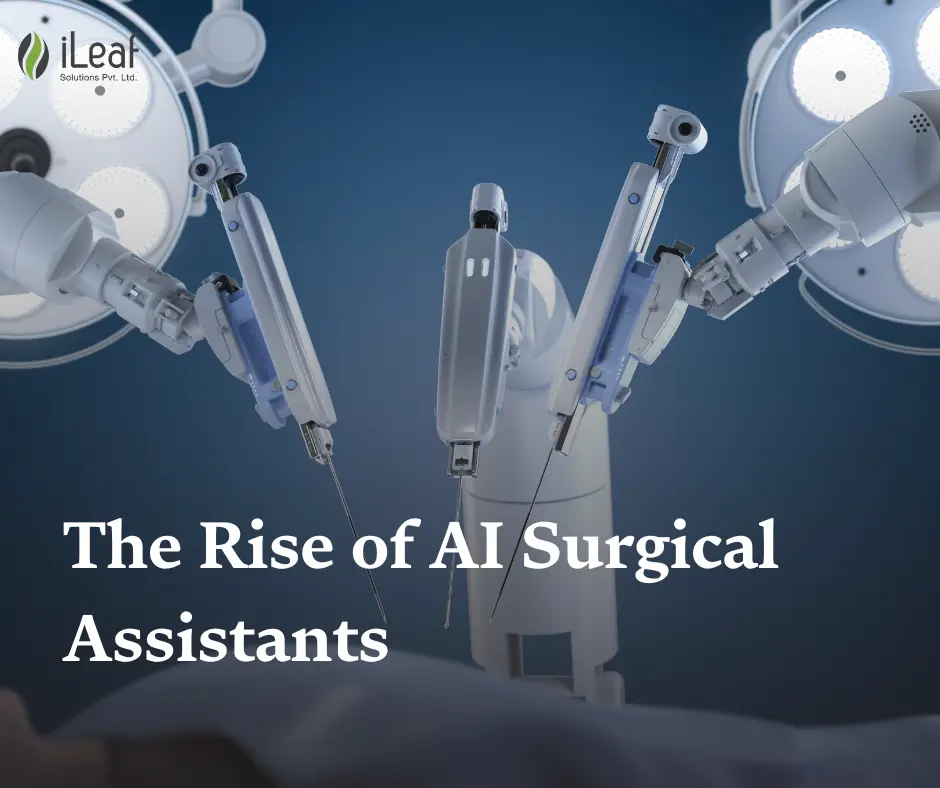Robots with a Scalpel: The Rise of AI Surgical Assistants

Overview
- Introduction
- Revolutionizing Telesurgery
- Benefits Beyond Distance
- The High Cost of Cutting-Edge Tech
- Regulation and the Evolving Landscape
- Ethical Considerations and the Human Touch
- The Future of AI in the operation theater
Introduction
Think about a world in which a surgeon in New York could be able to perform an operation on a patient living in a remote village in Africa. If this ever happens, then there can be no place too far away from where critical medical care could not reach due to its absence.The idea appears like it is from the future because now we have robot assistants for surgeries which are powered by artificial intelligence. They are similar but different from independent robots performing surgeries themselves since they act on human skill by giving an exact access and touch when performing difficult surgeries.
Revolutionizing Telesurgery
In the past, surgeons would have to be physically present before they could perform any operation. But at the moment AI Surgical Assistants have taken telerobotic operations to another level-Surgeons now work from different locations but carry out their duty. The artificial intelligence robots come fitted with cameras with very high resolution that give close-up images of where surgery is being carried out; thus enabling surgeons to spot the smallest details possible. AI algorithms, which ensure the surgeon’s movements are translated into millimeter-perfect execution on the patient, then translate to robotic arms movements.
Benefits Beyond Distance
A few merits of AI surgical assistants goes farther from carrying out remote surgeries; intelligent machines are always present to ensure that surgeons make no mistakes in their movements by absorbing all shakes they may experience during operations. By doing this , AI systems help to prevent injuries which could have otherwise resulted from incorrect positioning; such as touch pressure or wrong cutting points among others Furthermore, these programmable computers analyze massive volumes of patient information at once which would take humans hundreds of hours thereby giving us crucial clues about anatomy peculiarities including possible hazards

Picture a surgeon cutting into a brain tumor. The surgeon can be guided with very high precision by an AI surgical assistant who is able to inspect MRI scans showing the boundaries of the tumor. At the same time, vital signs of a patient are continuously checked by AI during the operation in case there are any problems during surgery.
The High Cost of Cutting-Edge Tech
A different problem is the expense associated with creating and putting into place AI–driven surgical assistance tools. This type of technology requires a substantial amount of money in terms of investment in R&D. This includes coming up with innovative ways to finance the technology as well as bringing stakeholders together to make sure that it can be used in a variety of locations around the world even those that lack enough resources. The biggest challenge is how to make sure that AI is fully integrated into the operating room workflow.
Surgeons need to be comfortable working alongside these intelligent machines, and rigorous training programs will be essential. Additionally, robust cybersecurity measures are paramount to safeguard patient data and prevent any potential malfunctions during surgery.
Regulation and the Evolving Landscape
Establishing clear guidelines for the development and use of AI surgical assistants will require regulatory bodies to play a crucial role. The guidelines should comprehensively address patient safety, data privacy, and ethical considerations. Given rapid advancements in AI technology, chances are such laws may remain under constant revision.
Ethical Considerations and the Human Touch
AI also raises important ethical considerations in the operating room. As much as AI can offer great help, it is necessary to note that human beings must never be replaced. Experts say judgment and gut feelings have always been indispensable for surgeons while they work in operating theaters. Therefore, surgical AI assistants should supplement a surgeon’s skills rather than replace them.

Surgery has to become a fusion of artificial intelligence and cognitive computing in which hands-on experience and knowledge work together. This will put robotic assistants into the hands of surgeons such that new boundaries can be pushed in surgery worldwide leading to better patient outcomes by extension.
The Future of AI in the Operation theater
A glowing potential awaits AI surgical assistants in the future whereby these robots will further advance their capacity through advancement in technology. Such as these robots; they might stitch patients back together; handle with care the most vulnerable tissues like nerves when cutting into them besides automating repetitive surgical steps among other functions which could be automated by robots at their disposal so far, releasing more time for surgeons during the surgery process.














